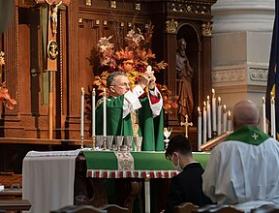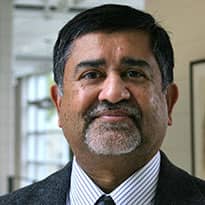For Hindus, Buddhists, and Jains, different cultural/spiritual traditions do not constitute religious rivalry because they think of their traditions as part of the human quest of the search for truth. As Mahatma Gandhi said, "Religions are different roads converging on the same point. What does it matter that we take different roads so long as we reach the same goal?" The wish to convert the other, to proselytize, therefore has led to conflict between the two groups: Hindus, Jains, and Buddhists on the one hand, and Christians and Muslims on the other. As India and other countries got colonized, people who were influenced by Western philosophy and traditions began to adopt the worldview of the Western/Christian colonizers regarding the nature of religion and religious freedom, ignoring the fundamental and logical contradictions between Indian/native cultural faith traditions and Abrahamic religions.
The result is that after liberation and independence they were still bound to the Western/Christian ideas. We can see this slavery to Western/Christian ideas reflected in documents like the Universal Declaration of Human Rights as well as in the Indian Constitution, which both privilege Christianity and Islam because the document writers accept the freedom to propagate religion and to proselytize as fundamental freedoms. In India, we should therefore be asking the following questions instead of beating the Western/Christian/Muslim drum of religious freedom: "How have the Indian traditions succeeded at alleviating the problem of religious conversion in the past? Which mechanisms and dynamics were at play there? To what extent do these persist? How could they be rediscovered and revived in the interests of a vibrant pluralism in India today?"
And finally let us tackle the State Department's concern that the 2007 law enacted in the state of Andhra Pradesh regarding the propagation of other religions in the places of worship or prayer and how the law has been applied only to Hindu places of worship. Duh! It is simply because Hindus don't proselytize, don't spread canards about other religions, and Hindus don't send their missionaries to churches and mosques to convert Christians and Muslims! That this obvious fact is not acknowledged by the State Department report goes to show the sheer cussedness of the assertions made in the report.
Alas, few in academe or in the media or in the human rights arena are going to challenge these nonsensical assertions and the imperialistic venture that such report writing constitutes. The Chinese are the only ones who have struck back hard and been dismissive of the Western, American-led human rights and religious freedom exercises. Interestingly, the Chinese have been able to reach the point of challenging Western hegemony by adopting the ideology of communism crafted in Europe, which in turn is an illiberal ideology. It is time that the West and the Chinese took a look at India and how India was the cradle of a variety of cultures that allowed others to live and prosper side by side—the thousands of languages, jati groups, cultural mores of food and drink, dress and worship all existing and prospering cheek by jowl for millennia. The right to propagate illiberal religions and ideologies will be the death knell of diversity in India.





